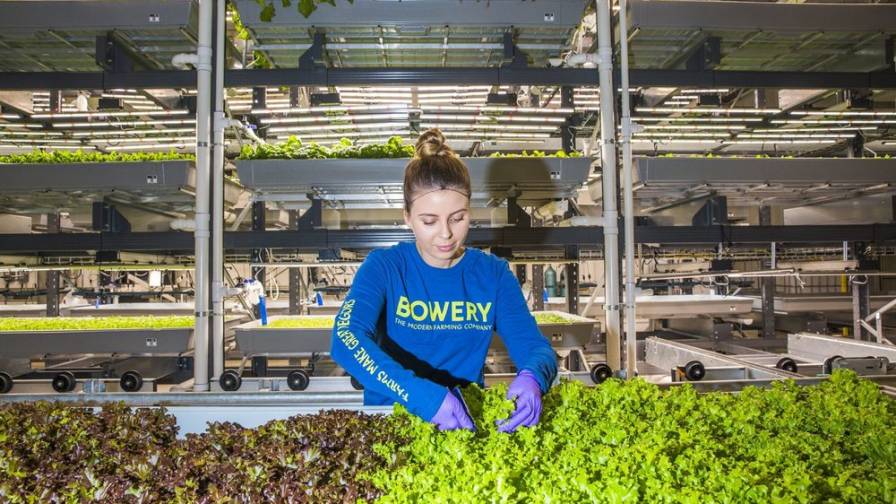John Deere is electrifying the farm with its new Electric Variable Transmission on its largest 8...
Once a Leading Indoor Farming Company, Bowery Shuts Down

Bowery Farming, a leading ag tech company backed by General Catalyst, GV, Temasek, and Fidelity Management, is ceasing all operations, according to a document seen by PitchBook and multiple company employees.
All of its employee sites, including its indoor farming facilities, will be closed and employees laid off effective immediately, according to the document.
New York-based Bowery, which at its peak was valued at $2.3 billion, raised venture capital totaling over $700 million from a cohort of leading firms and A-list celebrities including Justin Timberlake, Natalie Portman and Lewis Hamilton.
Promising to modernize the agriculture industry, Bowery partnered with grocery chains including Whole Foods, Amazon Fresh and Albertsons.
The company told staff that it had been actively attempting to secure financing or sell the company, but that it was unsuccessful in reaching a deal.
Last year, Bowery made multiple rounds of layoffs and delayed project openings in order to slow its cash burn as it looked to raise venture capital. The company raised $94 million at a $944 million valuation in October 2023, according to PitchBook data, shortly after two of its creditors marked down the value of their loans to the company.
Several prominent indoor farming companies, including AeroFarms, AppHarvest and Kalera, filed for Chapter 11 bankruptcy protection last year. Startups in the sector have struggled to finance operations among rising energy costs and a steep decline in venture capital investment.
EDITOR’S TAKE:
When the indoor farms were first introduced, they were touted to be the next high-tech solution to solving several issues, not the least of which is feeding an expanding global population. In addition, they were supposedly more sustainable and could operate 24/7/365. It appears that they are suffering from too much overhead to support the large startup costs and debt burden. These modern day “greenhouses” appeared to have a place in supplying products when conventional agriculture was impacted by weather or seasonality. We will continue to monitor their fate, but right now the future does not look bright. In the meantime, conventional ag will continue to do what it does best - feed the world. Make sure you put those conventional farmers/ranchers at the top of your customer prospect list.








